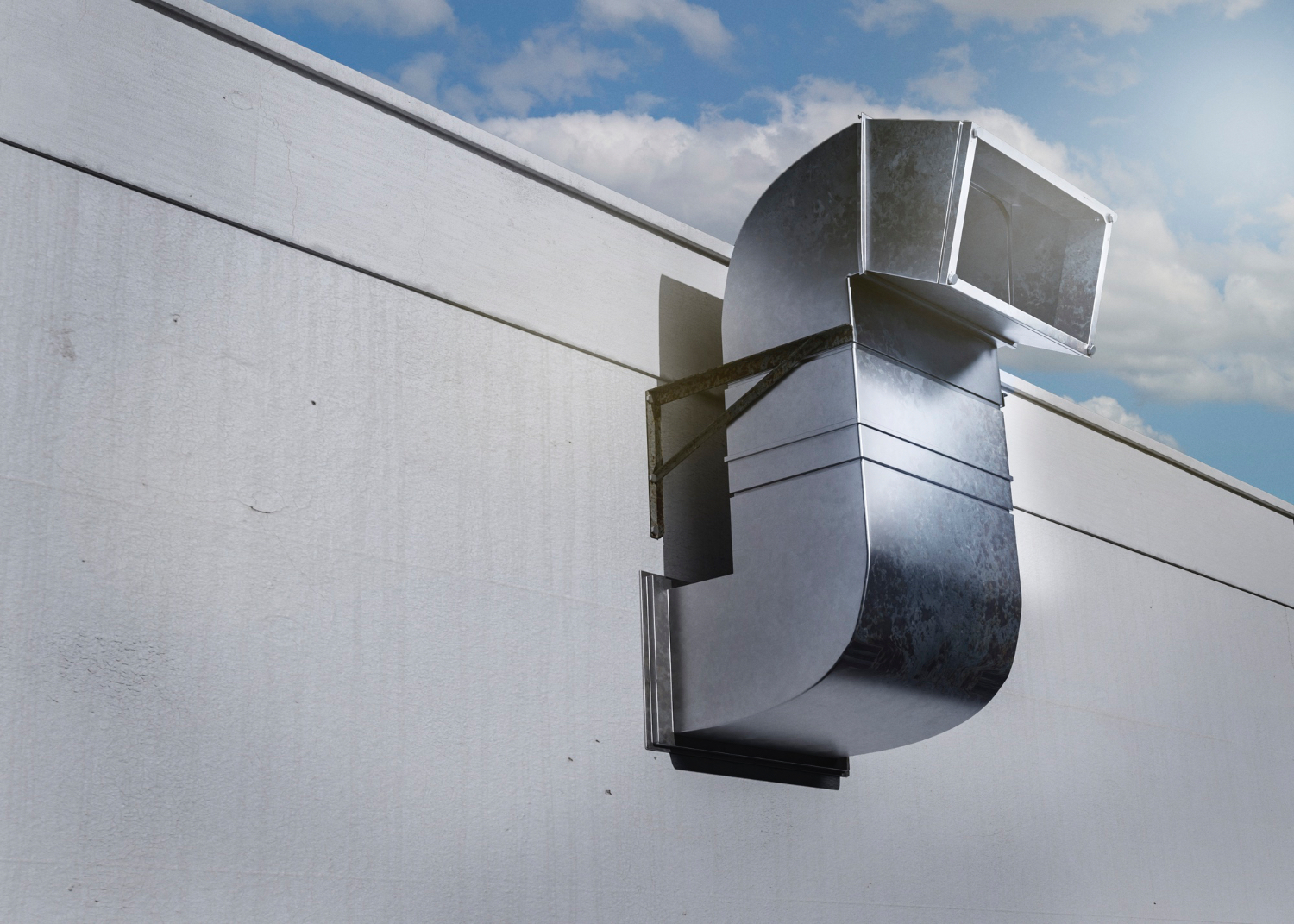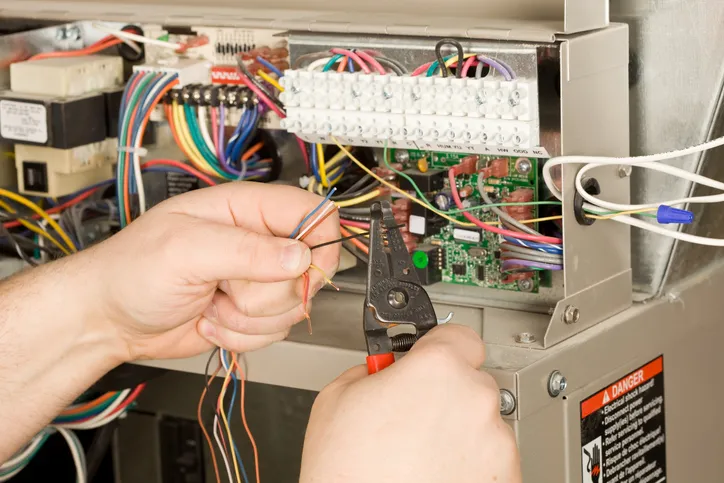
When your home’s heating system struggles to keep you warm, runs inefficiently, or frequently breaks down, it’s often more than just an inconvenience—it’s a sign that a heating replacement may be necessary. A reliable, efficient heating system is crucial for comfort, energy savings, and the overall well-being of your household, especially during colder months. At Stafford Home Service, we specialize in comprehensive heating replacement services, ensuring your home remains warm and inviting with a system that meets modern efficiency and performance standards.
Our approach guides you through every step of the replacement process, from identifying the critical signs that your old system needs to go, to selecting the ideal new system, handling professional installation, and conducting thorough post-replacement testing for optimal performance. We are dedicated to providing solutions that not only restore warmth but also significantly enhance your home’s energy efficiency and long-term comfort.
Why Consider Heating System Replacement?
Opting for a heating system replacement offers a multitude of benefits that extend beyond simply restoring warmth. Modern heating units are designed with advanced technology that dramatically improves efficiency, comfort, and safety. Here are the key advantages of upgrading your heating system:
- Improved Energy Efficiency: Older systems consume more energy to produce less heat. New, high-efficiency models can significantly reduce your utility bills, sometimes by as much as 20-30%, by using less fuel or electricity to heat your home.
- Enhanced Comfort: Newer systems provide more consistent and evenly distributed heat throughout your home, eliminating cold spots and maintaining desired temperatures more accurately.
- Increased Reliability: Say goodbye to frequent breakdowns and costly emergency repairs. A new system comes with a fresh warranty and the promise of dependable operation for years to come.
- Better Indoor Air Quality: Many modern heating systems, especially furnaces and heat pumps, can be integrated with advanced air filtration and purification systems, contributing to healthier indoor air.
- Reduced Carbon Footprint: High-efficiency systems use less energy, leading to a reduction in greenhouse gas emissions and a more environmentally friendly home.
- Quiet Operation: Technological advancements have made new heating units much quieter than their predecessors, contributing to a more peaceful home environment.

Clear Signs You Need a Heating Replacement
Recognizing the indicators that your heating system is failing is the first step toward a more comfortable and efficient home. Watch out for these common signs:
- Age of System: Most heating systems, like furnaces, have a lifespan of 15-20 years, while heat pumps typically last 10-15 years. If your system is nearing or has surpassed these averages, replacement is often more cost-effective than continuous repairs.
- Frequent or Costly Repairs: If you’re calling for repairs multiple times a year, or the cost of a single repair is approaching half the price of a new system, it’s a strong signal to replace.
- Rising Energy Bills: A sudden or steady increase in your heating costs, without a corresponding change in usage or energy prices, indicates your system is losing efficiency and working harder to produce heat.
- Inconsistent Heating: Cold spots in certain rooms or uneven temperature distribution throughout your home suggest your system is struggling to heat effectively.
- Strange Noises: Banging, rattling, squealing, or humming sounds coming from your heating unit can indicate mechanical problems, a failing motor, or issues with internal components.
- Unusual Odors: A persistent dusty or burning smell, especially beyond the initial startup of the season, can be a concern. A sulfur or "rotten egg" smell could indicate a gas leak and requires immediate professional attention.
- Yellow Pilot Light: For gas furnaces, a yellow or flickering pilot light instead of a strong blue flame can signal incomplete combustion, potentially releasing carbon monoxide. This is a serious safety hazard.
Exploring Your New Heating System Options
The market offers a diverse range of heating systems, each with unique characteristics suited to different home types, climates, and budgets. Understanding your options is crucial for making an informed decision:
- Furnaces (Gas, Electric, Oil): Furnaces heat air and distribute it through ductwork. Gas furnaces are popular for their efficiency and fast heating. Electric furnaces are a good option where natural gas isn’t available, while oil furnaces are less common now but still serve many homes.
- Heat Pumps: These versatile systems provide both heating and cooling. They work by transferring heat, rather than generating it, making them highly energy-efficient in moderate climates. Air-source heat pumps are common, while geothermal heat pumps offer even greater efficiency by using ground temperatures.
- Boilers: Boilers heat water to provide warmth through radiators, baseboard heaters, or radiant floor systems. They offer a very even, comfortable heat and are often found in older homes.
- Ductless Mini-Splits: Ideal for homes without existing ductwork or for additions and zoned heating, mini-splits offer individual control for specific areas, combining heating and cooling capabilities.
Our experts can help assess your home’s specific needs, insulation levels, local climate, and personal preferences to recommend the most appropriate and cost-effective heating system for your situation.
Understanding the Investment: Costs of Heating Replacement
The cost of a heating replacement can vary significantly based on several factors. While we cannot provide exact figures without a direct assessment, understanding these components will help you prepare:
- Type and Size of System: More advanced, higher-efficiency systems, such as geothermal heat pumps, generally have a higher upfront cost than standard furnaces. The size of the unit (measured in BTUs or tons) must match your home's square footage and insulation to operate efficiently.
- Energy Source: The cost of installing a gas, electric, or oil-fired system can differ based on existing connections and utility infrastructure.
- Installation Complexity: If your new system requires extensive modifications to existing ductwork, electrical wiring, or gas lines, or if the old system needs specialized removal, the labor costs will be higher.
- Brand and Features: Premium brands or systems with advanced features like variable-speed motors, smart thermostat compatibility, or multi-stage heating can influence the overall price.
- Permits and Inspections: Local regulations often require permits and inspections for heating system replacements, adding to the total cost.
We believe in transparent service and will provide a detailed estimate after assessing your specific needs, ensuring you understand all aspects of your investment.
Selecting a Trustworthy Heating Replacement Service
Choosing the right service provider for your heating replacement is as important as selecting the right system. Look for a company that prioritizes professionalism, expertise, and customer satisfaction. Stafford Home Service prides itself on these qualities. When evaluating providers, consider:
- Experience and Expertise: Ensure the company has a proven track record specifically in heating system replacements, not just repairs.
- Licensed and Insured Technicians: Verify that technicians are properly certified, licensed, and that the company carries comprehensive insurance for your protection.
- Comprehensive Assessment: A reputable service will conduct a thorough evaluation of your home and existing system before recommending a replacement.
- Transparent Pricing: Look for clear, detailed estimates with no hidden fees.
- Post-Installation Support: Inquire about warranties, maintenance plans, and responsiveness for any issues after installation.
Our team at Stafford Home Service embodies these principles, offering reliable, high-quality heating replacement services from start to finish.
The Professional Heating Replacement Process
A professional heating replacement involves several key stages, each performed with meticulous attention to detail to ensure safety and optimal performance:
- Initial Assessment: Our technicians begin with a thorough inspection of your existing system, ductwork, and home’s heating needs to recommend the best new system.
- System Selection: We guide you in choosing the ideal heating unit based on efficiency, budget, and your home’s specifications.
- Old System Removal: The old unit is carefully disconnected, safely removed, and properly disposed of, adhering to environmental regulations.
- New System Installation: The new heating unit is meticulously positioned, connected to existing or new ductwork, electrical lines, and fuel sources (gas, oil). All connections are sealed and secured.
- Ductwork Inspection and Modification: We inspect your ductwork for leaks or inefficiencies and make necessary repairs or modifications to ensure optimal airflow for the new system.
- Thermostat Installation: A new, often smart, thermostat is installed and configured to maximize your new system’s efficiency and your comfort.
- System Testing and Calibration: Once installed, the entire system undergoes rigorous testing. We check for proper operation, heating output, safety controls, and calibrate it for peak efficiency and performance.
- Homeowner Orientation: Our technicians will walk you through the new system, explaining its features, maintenance requirements, and how to operate your new thermostat effectively.
Maintaining Your New Heating System for Longevity
After your new heating system is installed, proper maintenance is key to ensuring its longevity, efficiency, and continued reliable performance.
- Regular Filter Changes: Replace or clean air filters every 1-3 months, depending on usage and home conditions, to maintain good airflow and air quality.
- Annual Professional Tune-Ups: Schedule a yearly inspection and tune-up with a qualified HVAC technician. This involves cleaning components, checking electrical connections, lubricating moving parts, and verifying safety controls.
- Clear the Area Around the Unit: Ensure the outdoor unit of a heat pump is free from debris, snow, and vegetation to allow for proper airflow.
- Listen and Observe: Pay attention to any unusual noises, smells, or performance changes. Addressing minor issues early can prevent major problems.
Adhering to a regular maintenance schedule not only preserves your system’s efficiency and extends its lifespan but also helps keep your manufacturer’s warranty valid.
Frequently Asked Questions About Heating Replacement
How long does a new heating system last?
With proper installation and regular maintenance, most new furnaces can last 15-20 years, while heat pumps typically last 10-15 years.
How long does the heating replacement process take?
Most standard heating system replacements can be completed within one to two days. More complex installations requiring ductwork modification or significant system changes might take longer.
What size heating system do I need for my home?
The correct size depends on various factors including your home's square footage, insulation levels, window quality, and local climate. Our technicians perform a detailed load calculation to determine the optimal system size for maximum efficiency and comfort.
Are there rebates or incentives available for new heating systems?
Many utility companies and government programs offer rebates or tax credits for installing high-efficiency heating systems. Our team can inform you about potential opportunities in your area.
What's the main difference between repairing and replacing a heating system?
Repairing addresses specific malfunctions to restore operation, suitable for minor issues in younger systems. Replacement is advised when a system is old, inefficient, frequently breaks down, or faces costly major repairs, offering long-term savings and improved performance.
Invest in Your Home's Future Comfort
A heating replacement is a significant investment that pays dividends in comfort, energy savings, and peace of mind. By understanding the signs of a failing system, exploring your options, and choosing a trusted service provider like Stafford Home Service, you ensure your home will be warm, efficient, and healthy for years to come. Our commitment is to provide expert guidance and meticulous installation, delivering a heating solution tailored to your needs.
When it’s time to consider a heating replacement, don't settle for anything less than reliable expertise. Contact us today for a professional assessment and discover how a new heating system can transform your home's comfort and efficiency.
Maintenance plan
Our premium maintenance plans start at just $216 annually, providing regular tune-ups, priority scheduling, and comprehensive protection to keep your systems running efficiently year-round.
Customer Testimonials
Our customers consistently praise our knowledgeable technicians, prompt service, and the lasting quality of the work we deliver.






